Understanding Self-cleaning Ovens
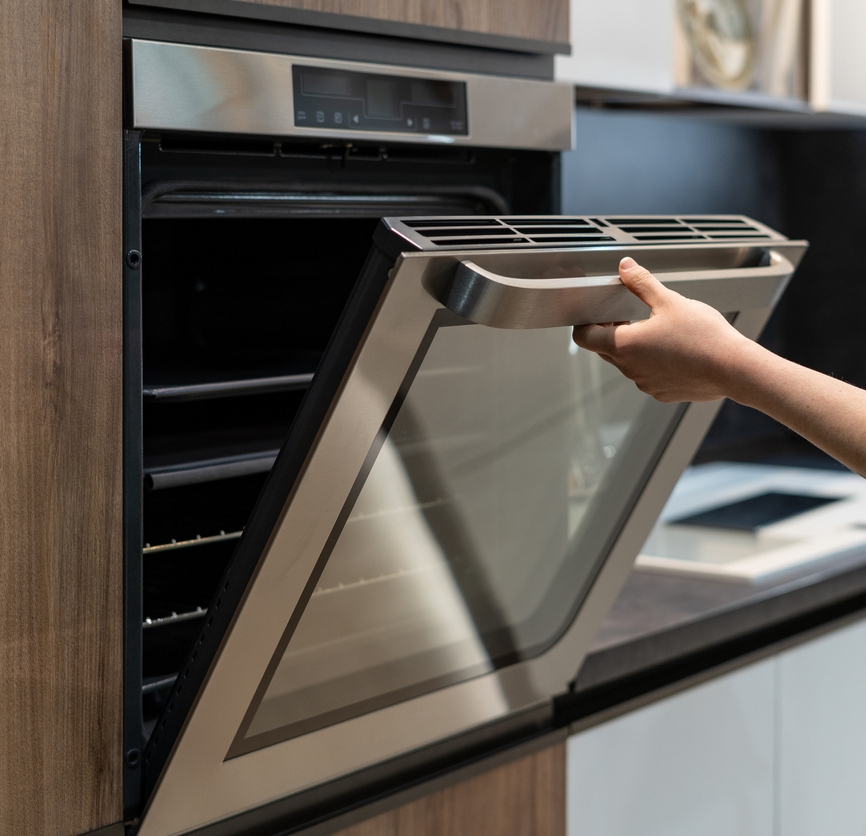
Self-cleaning ovens have gained popularity in recent years due to their convenience and efficiency. These ovens are equipped with a self-cleaning function that allows them to remove baked-on food and grease without the need for harsh chemicals or manual scrubbing. It works by heating the oven to a high temperature, typically around 800 degrees Fahrenheit, which incinerates any food residue into ash. The ashes can then be easily wiped away, leaving the oven clean and ready to use. This self-cleaning process saves time and effort for the user.
Overview Of Self-cleaning Oven Technology
Self-cleaning ovens utilize advanced technology to remove baked-on food and grease, making them a convenient choice for many households. These ovens feature a self-cleaning function that heats the interior to extremely high temperatures, typically around 800 degrees Fahrenheit. At this temperature, any residue or spills are incinerated into ash, which can then be easily wiped away. The self-cleaning cycle typically lasts a few hours, after which the oven cools down and is ready to use again. This innovative technology saves users time and effort by eliminating the need for manual scrubbing or harsh chemicals.
Common Misconceptions About Self-cleaning Ovens
Self-cleaning ovens are often surrounded by misconceptions that prevent people from taking full advantage of their benefits. One common misconception is that self-cleaning ovens release toxic fumes that can harm humans and pets. However, this is not true as the fumes emitted during the self-cleaning process are only harmful to tropical birds. Another misconception is that the self-cleaning cycle is too time-consuming and troublesome. In reality, the self-cleaning function is a convenient and effective way to remove tough stains and grease, saving users time and effort. So, it’s time to debunk these myths and embrace the convenience of self-cleaning ovens.
How Does A Self-cleaning Oven Work?
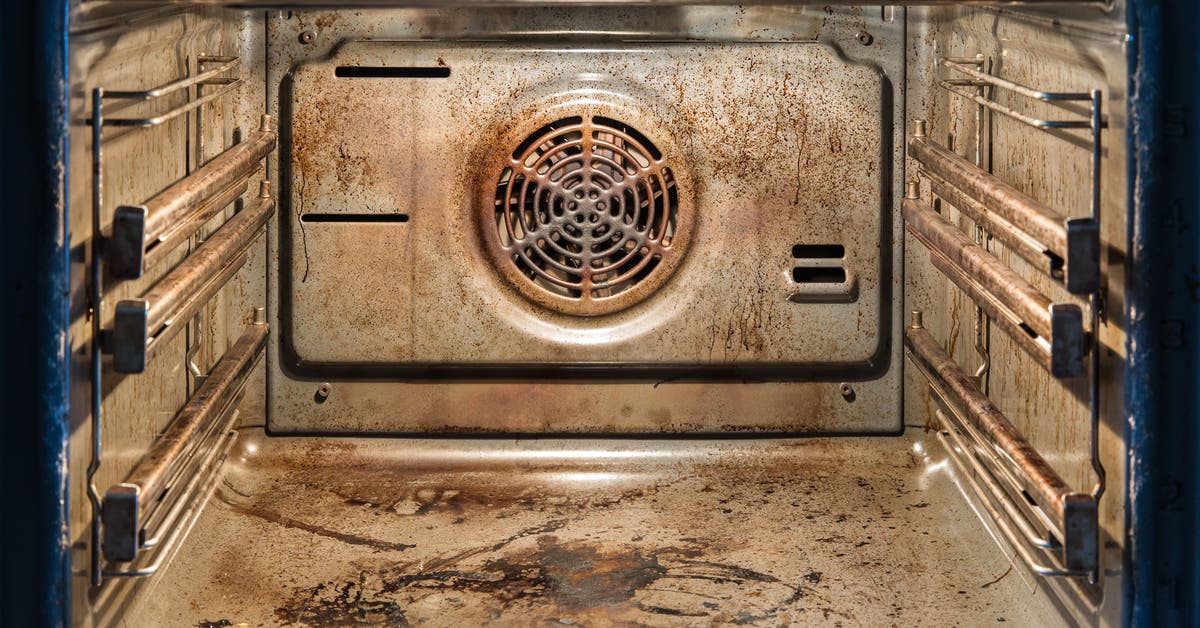
Self-cleaning ovens utilize a high heat cleaning cycle to remove stubborn grease and food residue. When activated, the oven’s temperature rises to around 900 degrees Fahrenheit (482 degrees Celsius). At this extreme heat, any spills and stains are turned to ash, which can be easily wiped away once the oven has cooled down. The self-cleaning cycle typically lasts between two to four hours, depending on the oven model. During this time, the oven locks itself for safety and has built-in insulation to prevent the exterior from becoming dangerously hot.
Process Of Self-cleaning Cycle
During the self-cleaning cycle, the oven’s temperature is raised to approximately 900 degrees Fahrenheit (482 degrees Celsius). This extreme heat triggers the oxidation process, turning any food particles or spills into ash. The cycle typically lasts between two to four hours, depending on the oven model. The oven door automatically locks for safety, preventing any accidental opening during the high-temperature phase. After the cycle is complete, the oven needs to cool down before the ash residue can be easily wiped away. It is important to follow the manufacturer’s instructions and avoid using the oven during the cleaning process.
Safety Features Of Self-cleaning Ovens
Self-cleaning ovens are equipped with several safety features to ensure the user’s well-being. One of the key safety measures is the automatic door lock mechanism. This feature prevents the oven door from being opened during the high-temperature cleaning cycle, reducing the risk of burns from the intense heat inside. Additionally, self-cleaning ovens have built-in temperature sensors that constantly monitor and regulate the heat levels to prevent overheating. This feature ensures that the oven remains within a safe operating range. Furthermore, some ovens have a ventilation system that helps remove any odors or gases generated during the cleaning process, further enhancing safety.
Chemicals Used In Self-cleaning Ovens
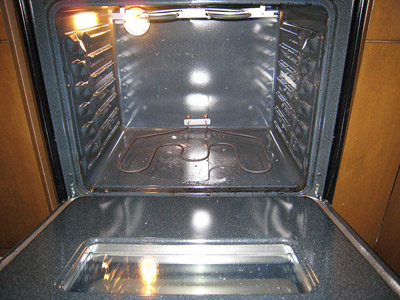
Self-cleaning ovens use heat and not chemicals to clean the oven cavity. During the self-cleaning cycle, the oven reaches high temperatures to burn off any food residue or grease. This process turns the leftover debris into ash, which can be easily wiped away once the cycle is completed. Therefore, there is no need to use any chemicals in self-cleaning ovens, making them a safer and more environmentally-friendly option for cleaning your oven.
Types Of Chemicals Used In Self-cleaning Ovens
While self-cleaning ovens do not use chemicals to clean the oven cavity, there may still be some chemicals or substances involved in the process. One common substance used in self-cleaning ovens is a pyrolytic enamel coating, which helps to break down food residue and turn it into ash. This coating is typically made from materials such as titanium or ceramic. However, it is important to note that these substances are not actively used as cleaning agents, but rather as a part of the oven’s construction and design. Consequently, there is no need to be concerned about harmful chemicals being released during the self-cleaning process.
Health And Safety Concerns Associated With Self-cleaning Oven Chemicals
While self-cleaning ovens do not use chemicals to clean the oven cavity, there have been concerns regarding the potential health and safety hazards associated with self-cleaning oven chemicals. Some individuals may be sensitive to the odor and fumes that are emitted during the self-cleaning process. It is recommended to ensure proper ventilation during the cleaning cycle to minimize exposure to these fumes. Additionally, it is crucial to follow the manufacturer’s instructions and guidelines for safe and effective use of self-cleaning ovens.
Myth: Can Self-cleaning Ovens Release Toxic Fumes?
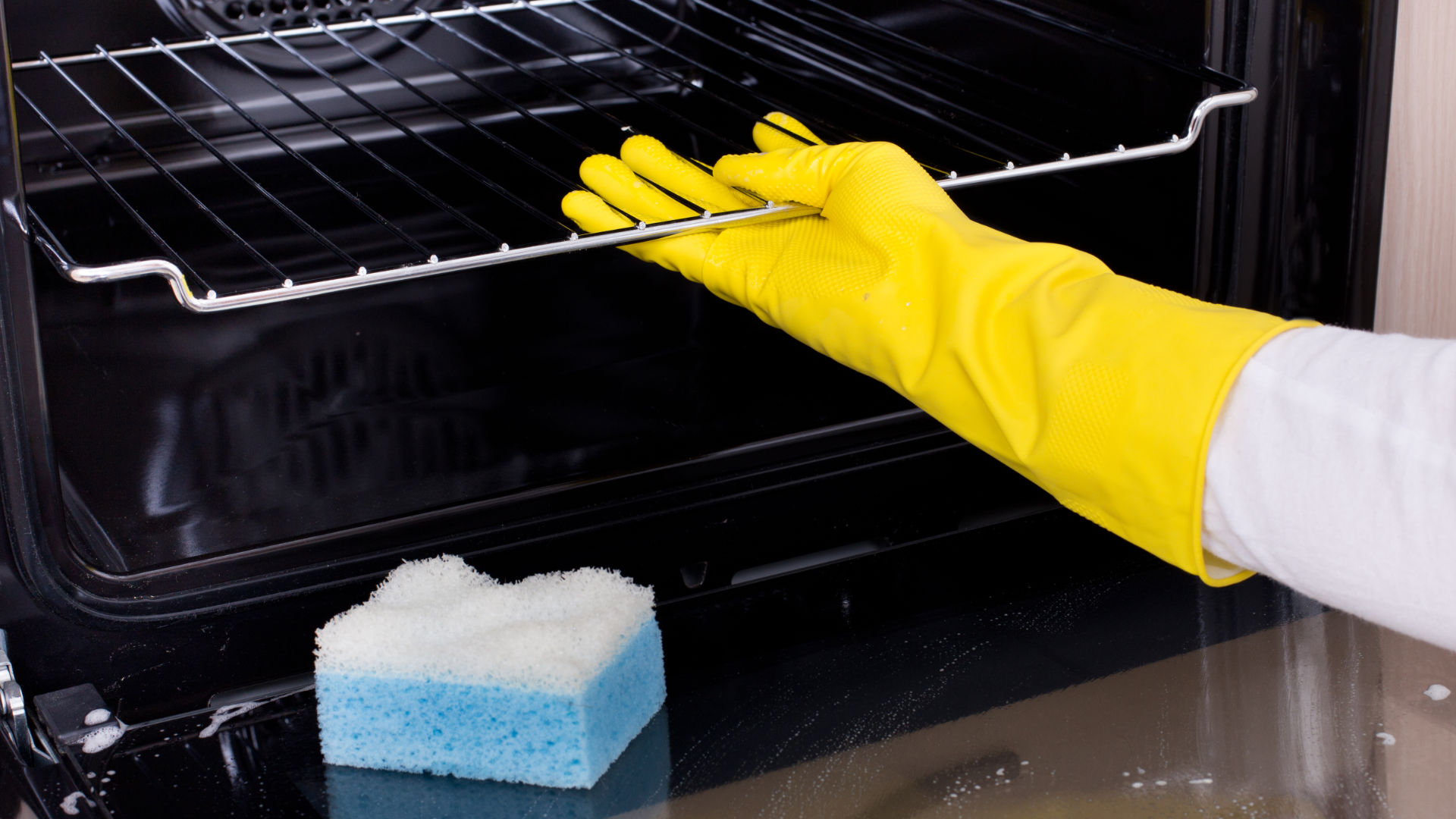
Contrary to popular belief, self-cleaning ovens do not release toxic fumes that are harmful to humans. The fumes produced during the self-cleaning cycle may have an unpleasant odor, but they are not toxic and pose no significant health risks. However, it is still important to take precautions and ensure proper ventilation while the self-cleaning process is taking place. This will help to minimize any discomfort caused by the odor and ensure a safe environment in your kitchen. Following the manufacturer’s instructions is essential to ensure safe and effective use of self-cleaning ovens.
Debunking The Myth Of Toxic Fumes
Contrary to popular belief, self-cleaning ovens do not release toxic fumes that are harmful to humans. The fumes produced during the self-cleaning cycle may have an unpleasant odor, but they are not toxic and pose no significant health risks. However, it is still important to take precautions and ensure proper ventilation while the self-cleaning process is taking place. This will help to minimize any discomfort caused by the odor and ensure a safe environment in your kitchen. Following the manufacturer’s instructions is essential to ensure safe and effective use of self-cleaning ovens.
Safety Precautions When Using Self-cleaning Ovens
When using self-cleaning ovens, it is important to take certain safety precautions to ensure a smooth and risk-free process. Firstly, read and follow the manufacturer’s instructions carefully to avoid any mishaps. Always remove any food debris or spills from the oven before starting the self-cleaning cycle. Ensure proper ventilation in the kitchen by opening windows or using exhaust fans to minimize any unpleasant odors. Never touch the oven’s interior during or immediately after the cleaning cycle, as it can be extremely hot. Finally, keep children and pets away from the oven during the self-cleaning process for their safety.
Fact Check: Can Self-cleaning Ovens Harm Your Health?
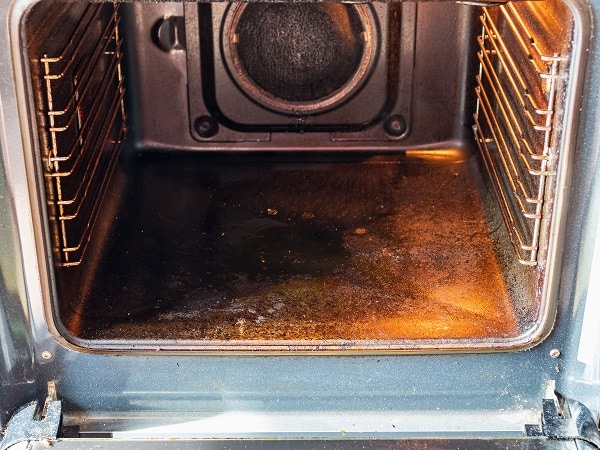
Research on the health impact of self-cleaning ovens indicates that when used according to the manufacturer’s instructions, they do not pose a significant risk to human health. Studies have found that any emissions during the self-cleaning cycle are well below the recommended exposure limits. In addition, experts agree that as long as proper ventilation is maintained, the potential health risks are minimal. However, it is still important to take necessary precautions, such as removing food debris and ensuring good ventilation, to ensure safe use of self-cleaning ovens.
Research On The Health Impact Of Self-cleaning Ovens
Research on the health impact of self-cleaning ovens indicates that when used according to the manufacturer’s instructions, they do not pose a significant risk to human health. Studies have found that any emissions during the self-cleaning cycle are well below the recommended exposure limits. In addition, experts agree that as long as proper ventilation is maintained, the potential health risks are minimal. However, it is still important to take necessary precautions, such as removing food debris and ensuring good ventilation, to ensure safe use of self-cleaning ovens.
Expert Opinions On The Safety Of Self-cleaning Ovens
According to experts in the field, self-cleaning ovens are generally considered safe to use when proper precautions are taken. They emphasize the importance of following the manufacturer’s instructions and ensuring good ventilation during the self-cleaning cycle. Experts also highlight that the emissions produced during the self-cleaning process are typically well below recommended exposure limits. With proper use, the health risks associated with self-cleaning ovens are minimal. It is recommended to consult the oven’s manual or seek advice from professionals for any specific concerns or questions regarding the safety of self-cleaning ovens.
Conclusion
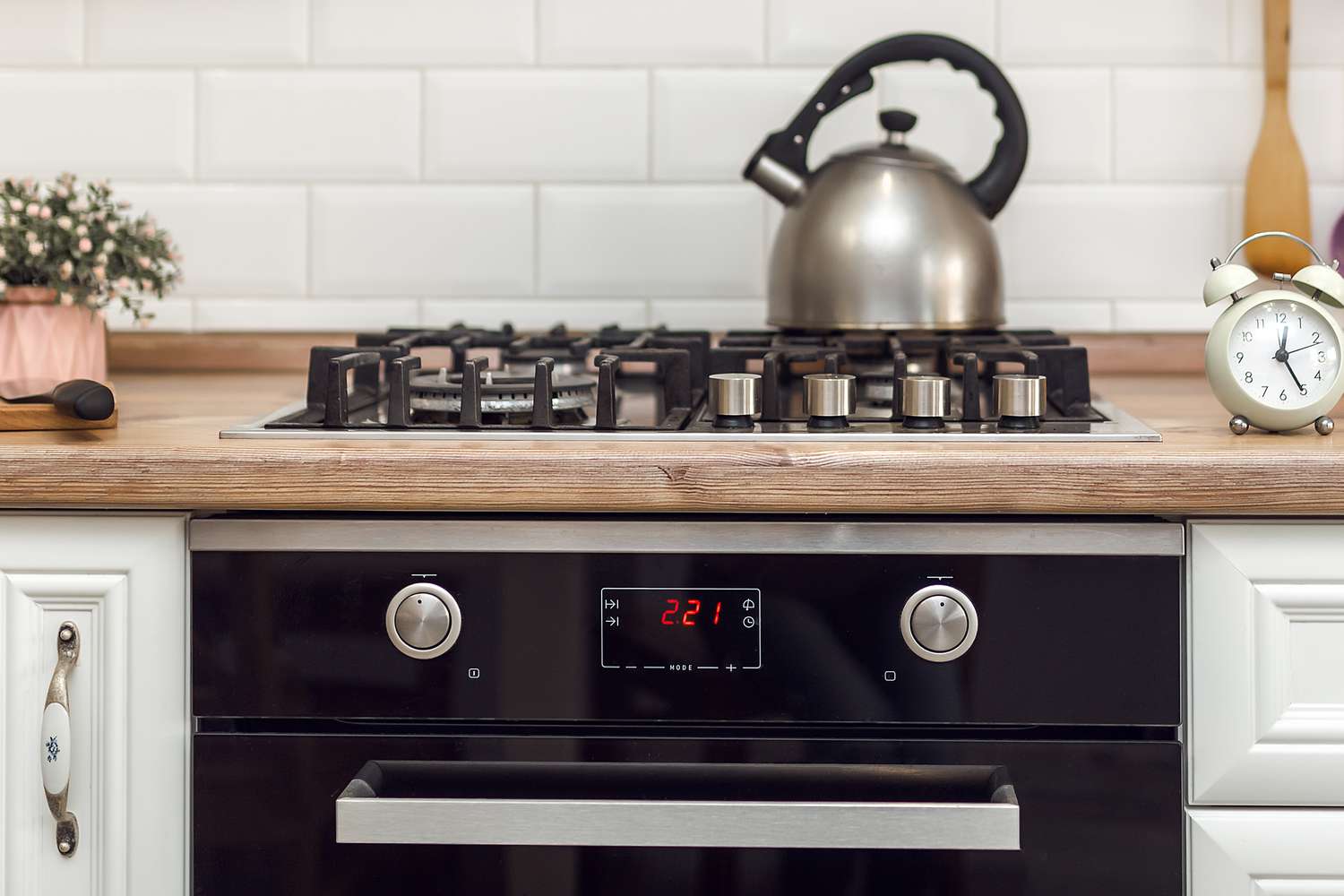
In conclusion, self-cleaning ovens are a convenient and safe option for household use. It is important to address common misconceptions surrounding their safety and understand how they work. The chemicals used in self-cleaning ovens pose minimal health risks when proper precautions are taken, and the emissions produced during the self-cleaning process are typically well below recommended exposure limits. By following manufacturer’s instructions and ensuring good ventilation, users can confidently utilize self-cleaning ovens without any significant health concerns. It is recommended to consult the oven’s manual or seek professional advice for specific questions or concerns.
Pros And Cons Of Self-cleaning Ovens
Self-cleaning ovens offer numerous advantages for users. The automated cleaning process eliminates the need for manual scrubbing, saving time and effort. It also helps to remove tough stains and grease, ensuring a clean and hygienic cooking environment. Additionally, self-cleaning ovens often come with safety features such as door locks and temperature controls to prevent accidents. However, it’s important to note that the self-cleaning cycle can produce strong odors and may consume a significant amount of energy. Users should consider these factors and weigh the benefits against any potential drawbacks when deciding whether to use the self-cleaning function.
Tips For Safe And Effective Use
When using a self-cleaning oven, follow these tips for safe and effective use:
- Read the manufacturer’s instructions: Familiarize yourself with the specific guidelines for your oven model to ensure proper use and safety precautions.
- Remove any excessive debris: Before starting the self-cleaning cycle, ensure that there is no excess food or debris in the oven. This will prevent them from burning and creating smoke during the cleaning process.
- Ventilate the kitchen: Open windows or turn on a fan to allow proper ventilation during the self-cleaning cycle. This will help to disperse any odors or fumes that may be produced.
- Keep children and pets away: During the self-cleaning process, it is important to keep children and pets out of the kitchen to prevent accidents or exposure to the high heat or fumes.
- Monitor the oven: While the self-cleaning cycle is running, periodically check on the oven to ensure that everything is functioning correctly and there are no issues.
By following these tips, you can safely and effectively use your self-cleaning oven without any concerns.
FAQ About Can Self-cleaning Oven Kill You? Debunking The Cleaning Myth
Q: Can the fumes from a self-cleaning oven kill you?
A: While the fumes generated during the self-cleaning cycle can be harmful if inhaled in large quantities, they are not typically lethal. It is essential to ventilate the area properly during and after the cleaning process to minimize exposure to these fumes.
Q: Can the extreme heat of a self-cleaning oven be dangerous?
A: The intense heat used in self-cleaning ovens can indeed pose a risk of burns if touched during the cleaning cycle. It is crucial to follow the manufacturer’s instructions carefully and keep children and pets away from the appliance when it is in operation.
Q: Is it safe to leave the house while a self-cleaning oven is running?
A: It is generally recommended to stay at home while a self-cleaning oven is in operation as a precautionary measure. Monitor the process, ensure proper ventilation, and be prepared to address any issues that may arise during the cleaning cycle.
Q: Can a self-cleaning oven start a fire?
A: While self-cleaning ovens are designed to operate at high temperatures, there is a possibility of a fire if there is a malfunction or if flammable materials are left inside the oven during the cleaning cycle. It is essential to remove any spills, crumbs, or grease before initiating the self-cleaning process.
Q: How often should a self-cleaning oven be cleaned?
A: Self-cleaning ovens should ideally be cleaned regularly to prevent the buildup of grime and residue. While the self-cleaning function can help with heavy-duty cleaning, routine maintenance such as wiping spills and crumbs after each use is also recommended to keep the oven in good condition.

Kostas Mediterranean is a family-owned Greek restaurant located in North Vancouver. Our passion for bringing the authentic flavors of Greece to the local community has been the driving force behind our establishment. We take pride in offering a warm and welcoming atmosphere where guests can experience the true essence of Greek hospitality. Our journey began with Kostas, whose culinary skills and love for Greek cuisine inspired the creation of the restaurant. With a desire to share his family recipes and traditions, Kostas set out to create a dining experience that captures the spirit of Greece. The result is a menu that showcases a delightful blend of traditional and modern Greek dishes prepared with the finest and freshest ingredients.